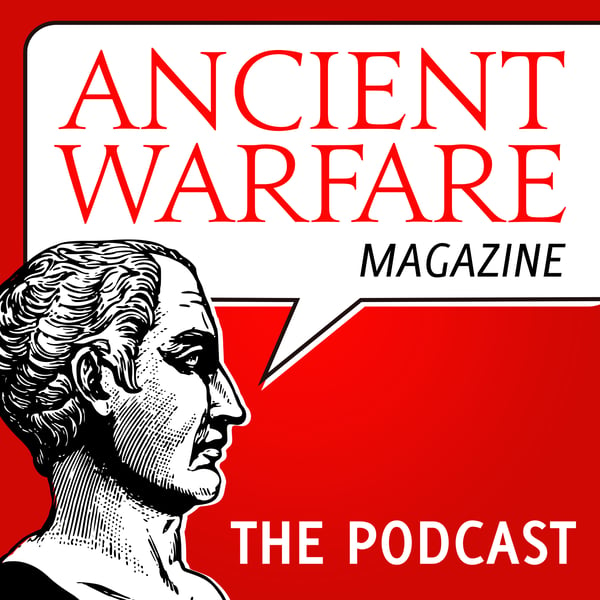Gaius Marius at War
Ancient Warfare Podcast
The History Network
4.4 • 631 Ratings
🗓️ 13 May 2011
⏱️ 51 minutes
🧾️ Download transcript
Summary
Gaius Marius is credited with introducing wide ranging reforms which would transform the Roman Army into the professional machine of the Empire. Elected consul and unprecedented seven times, he authorised landless citizens to do military service (something that may have lead to the eventually down fall of the Roman Empire as troops became bound to their Generals to ensure their care), he gave them fixed duration of service and as such established a standing army.
But were all of Marius's reforms his own? What was there impact? And was he the great a leader as we are allowed to believe? In a lively discussion Jasper, Lindsay, Murray and Michael discuss Ancient Warfare magazine V-1, The 'new man' who saved Rome. Gaius Marius at War.Transcript
Click on a timestamp to play from that location
| 0:00.0 | Welcome to the Ancient Warfare Magazine podcast produced by the History Network. If you have any |
| 0:06.4 | comments or ideas, email editor at ancient-warfare.com. And for other discussions, check out the |
| 0:15.4 | ancient warfare forum, which you can find a link to at www.w. ancient-warfare.com. You can also find all the History Network |
| 0:26.5 | podcasts by going to www.thehistorynetwork.org. Hello everyone. It's time again for another |
| 0:35.0 | ancient warfare podcast. This time we're debating |
| 0:37.7 | ancient warfare issue 5-1. The new man who saved Rome, Gaius Marius at war. With me tonight |
| 0:44.3 | are recently published author Lindsay Powell. Congratulations. Michael Taylor and Murray Dom, |
| 0:51.7 | who is, well, not recently published anything, but recently become a father again. |
| 0:55.7 | So congratulations to you two as well. |
| 0:58.5 | All right, Marius, where shall we start? |
| 1:00.4 | Famous for all his army reforms, equipment reforms, reforms in the recruitment practices of the Roman army. |
| 1:10.8 | I believe, Lindsay, you had a remark to make of the Roman army. |
| 1:16.3 | I believe, Lindsay, you had a remark to make about the supposed Pellum reforms of Marius. |
| 1:18.1 | Well, go ahead, Lindsay. |
| 1:20.1 | Why don't you tell us what's wrong with the Pilem? |
| 1:29.7 | I think my basic premise is, why would Plutarch describe it in the terms that this weapon is designed to bend on impact? there wasn't some notion that that's what exactly it was supposed to do why would he make it up is basically my |
| 1:35.3 | premise here and I know that there are different designs and there are suggestions in the text that |
| 1:40.5 | well that the flange is designed in such a way to compensate for a bending or twisting |
| 1:44.4 | action. But what I think what I would like to have seen in the report was quantitative data. |
| 1:51.4 | Somebody actually built a couple of these to a design and actually literally did throw them |
| 1:56.0 | against targets and then kind of measured them for straightness, if you will. Did they actually |
| 2:01.4 | bend in any kind of angle or did the metal piece break from the wooden shaft? And I'm not sure |
... |
Please login to see the full transcript.
Disclaimer: The podcast and artwork embedded on this page are from The History Network, and are the property of its owner and not affiliated with or endorsed by Tapesearch.
Generated transcripts are the property of The History Network and are distributed freely under the Fair Use doctrine. Transcripts generated by Tapesearch are not guaranteed to be accurate.
Copyright © Tapesearch 2025.

